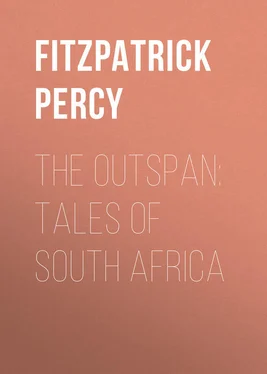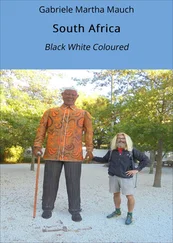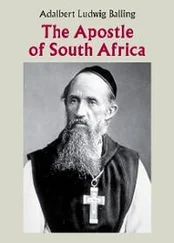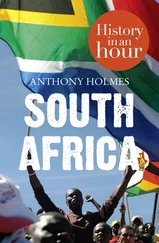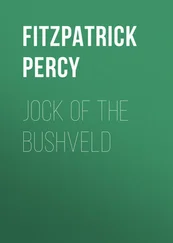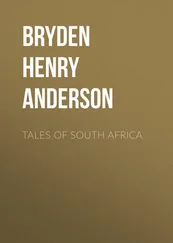Percy Fitzpatrick - The Outspan - Tales of South Africa
Здесь есть возможность читать онлайн «Percy Fitzpatrick - The Outspan - Tales of South Africa» — ознакомительный отрывок электронной книги совершенно бесплатно, а после прочтения отрывка купить полную версию. В некоторых случаях можно слушать аудио, скачать через торрент в формате fb2 и присутствует краткое содержание. Жанр: foreign_antique, foreign_prose, short_story, на английском языке. Описание произведения, (предисловие) а так же отзывы посетителей доступны на портале библиотеки ЛибКат.
- Название:The Outspan: Tales of South Africa
- Автор:
- Жанр:
- Год:неизвестен
- ISBN:нет данных
- Рейтинг книги:3 / 5. Голосов: 1
-
Избранное:Добавить в избранное
- Отзывы:
-
Ваша оценка:
- 60
- 1
- 2
- 3
- 4
- 5
The Outspan: Tales of South Africa: краткое содержание, описание и аннотация
Предлагаем к чтению аннотацию, описание, краткое содержание или предисловие (зависит от того, что написал сам автор книги «The Outspan: Tales of South Africa»). Если вы не нашли необходимую информацию о книге — напишите в комментариях, мы постараемся отыскать её.
The Outspan: Tales of South Africa — читать онлайн ознакомительный отрывок
Ниже представлен текст книги, разбитый по страницам. Система сохранения места последней прочитанной страницы, позволяет с удобством читать онлайн бесплатно книгу «The Outspan: Tales of South Africa», без необходимости каждый раз заново искать на чём Вы остановились. Поставьте закладку, и сможете в любой момент перейти на страницу, на которой закончили чтение.
Интервал:
Закладка:
“This trait was his curse. He was well off and well connected, and he married one of the most charming women I have ever met. For years none of us knew he was married. His wife was, I am convinced, as good as gold; but she was young, attractive, accomplished, and, in fact, a born conqueror. Perhaps she was foolish to show all the happiness she felt in being liked and admired. You know the long absences of a sailor. Well, perhaps she would have been wiser had she cut society altogether; but she was a true, good woman, for all that, and she worshipped him like a god! None of us ever knew what happened; but he left wife and child, settled on them all he had in the world, handed over his estates and almost all his income, and his right to legacies to come, went out into the world, and simply erased them from his mind and life.
“That was a good many years ago – ten, I should think; and – I hate to think it – but I wish I was as sure of to-morrow as I am sure that he never recognised their existence again.”
The surveyor shuddered at the thought.
“He was a man who could do anything that other men could do. He was best at everything. He was loved by his mates, worshipped by his men, and liked and admired by everyone who met him – until this trait was revealed. Others must have felt as I did. When I discovered that in him, I don’t know whether I was more frightened or grieved. I don’t know that I didn’t stick to him more than ever – perhaps from pity, and the sense that he was his own enemy and needed help. I have never heard of or from him since he left the service, and yet I believe I was his most intimate friend. Oliver Raymond Rivers was his name. Musical name, isn’t it?”
Barberton dropped his pipe.
“Good God! Sebougwaan!”
Chapter Two.
Soltké.
An Incident of the Delagoa Road
We were transport-riders trekking with loads from Delagoa Bay to Lydenburg, trekking slowly through the hot, bushy, low veld, doing our fifteen to twenty miles a day. The roads were good and the rates were high, and we were happy.
Towards sundown two of us strolled on ahead, taking the guns in hopes of picking up a guinea-fowl, or a stembuck, or some other small game, leaving the waggons to follow as soon as the cattle were inspanned. We shot nothing; in fact, we saw nothing to shoot. It was swelteringly hot, as it always is there until the red sun goes down and all things get a chance to cool. It was also very dusty – two or three inches of powdery dust under our feet, which whipped up in little swirls at the least breath of air. I was keeping an eye on the scrub on my side for the chance of a bush pheasant, and not taking much notice of the road, when my companion pulled up with a half-suppressed exclamation, and stood staring hard at something on ahead.
“Dern my skin!” said he slowly and softly, as I came up to him. He was a slow-spoken Yankee. “Say, look there! Don’t it beat hell?”
In the direction indicated, partly hidden by the scant foliage of a thorn-tree, a man was sitting on a yellow portmanteau reading a book. The sight was unusual, and it brought the unemotional Yankee to a standstill and set us both smiling. The man was dressed in a sort of clerk’s everyday get-up, even to the bowler hat, and as he sat there he held overhead an old black silk umbrella to protect him from such of the sun’s rays as penetrated the thorn-bush. He must have become conscious of the presence of life by the subtle instinct which we all know and can’t explain, for almost immediately he raised his glance and looked us straight in the eyes. He rose and came towards us, laying aside the umbrella, but keeping his place in the book.
The scene was too ludicrous not to provoke a smile, and the young fellow – he could not have been above twenty-three – mistaking its import, raised his hat politely and wished us “good-afternoon.”
He spoke English, but with a strong German accent, and his dress, his open manner, his ready smiles, and, above all, his politeness, proclaimed him very much a stranger to those parts. Key murmured a line from a compatriot: “Green peas has come to market, and vegetables is riz.”
“You have come mit der waggons? You make der transport? Not?” he asked us, following up the usual formula.
We told him it was so, and that we were for the fields, and reckoned to reach Matalha by sun-up. He too, he said, was going to the gold-fields, and would be a prospector; he was just waiting for his “boy,” who had gone back for something he had forgotten at the last place. He was going to walk to Moodie’s, he said. He “ did make mit one transporter a contract to come by waggons; but it was a woman mit two childs what was leave behind, and dere was no more waggons, so he will walk. It was good to walk to make him strong for de prospect. Oh yes!”
We were used to meeting all sorts on the road, and they were pretty well all inclined to talk; but this one was so full it just bubbled out of him, and in his broken English he got off question on question, between times imparting scraps of information about himself and his hopes. He was clearly in earnest about his future, and he was so utterly unpractical, so hopelessly astray in his view of everything, that one could not but feel kindly towards him. We chatted with him until our waggons came up, when he again politely raised his hat as he said good-bye to us, and offered many thanks for the information about the road. As we moved on with the waggons, he turned to look down the road by which we had come, and said, apparently as an afterthought:
“You haf seen my ‘boy’ perhaps? Not? No! Soh! Good-bye – yes, good-bye!”
It does not take long for daylight to glide through dusk into darkness in the bush veld in South Africa, and even these few minutes spent in conversation had seen the light begin to fade from the sky as the sun disappeared. The road was good and clear of rocks and stumps, so we hopped onto the most comfortable waggon, and talked while the oxen plodded slowly along.
We had quite a large party that trip, for, besides Gowan and myself, who owned the waggons, we had three traders from Swazie country – old friends of ours who had come down to Delagoa to buy goods. We had all arranged to stand in together in a big venture of running loads through Swazieland to the gold-fields later on in the season; in fact, the trip we were then making was more or less a trial one to see how the land lay, and how much we could venture in the big coup.
Gowan, the other transport-rider, and I always travelled together. We were not partners exactly, but in a country like that it was good to have a friend, and we understood each other. There were no two ways about him; he was a white man through and through. The two Mackays were brothers; they had left Scotland some years before to join a farming scheme “suitable for gentlemen’s sons with a little capital,” as the circular and advertisements said. They had given it best, however, and gone trading long before I met them. The other member of our party was the one with whom I had been walking. He was an American, and had been everything and everywhere, most lately a trader in Swazie country. We generally called him the Judge.
As the waggons rumbled along Key was giving a more or less accurate account of our conversation with the stranger.
It was very amusing, even more amusing than the original, for I am bound to say that with him a story did not suffer in the telling. It was only Gowan who didn’t seem to see anything to laugh at in the affair. He sat there dangling his legs over the buck-rails, chewing a long grass stalk, and humming all out of tune. He had a habit of doing that, growling with it. Presently, as conversation flagged, the tune got worse and his growling took the shape of a reference to “giving a poor devil a lift.”
Читать дальшеИнтервал:
Закладка:
Похожие книги на «The Outspan: Tales of South Africa»
Представляем Вашему вниманию похожие книги на «The Outspan: Tales of South Africa» списком для выбора. Мы отобрали схожую по названию и смыслу литературу в надежде предоставить читателям больше вариантов отыскать новые, интересные, ещё непрочитанные произведения.
Обсуждение, отзывы о книге «The Outspan: Tales of South Africa» и просто собственные мнения читателей. Оставьте ваши комментарии, напишите, что Вы думаете о произведении, его смысле или главных героях. Укажите что конкретно понравилось, а что нет, и почему Вы так считаете.
